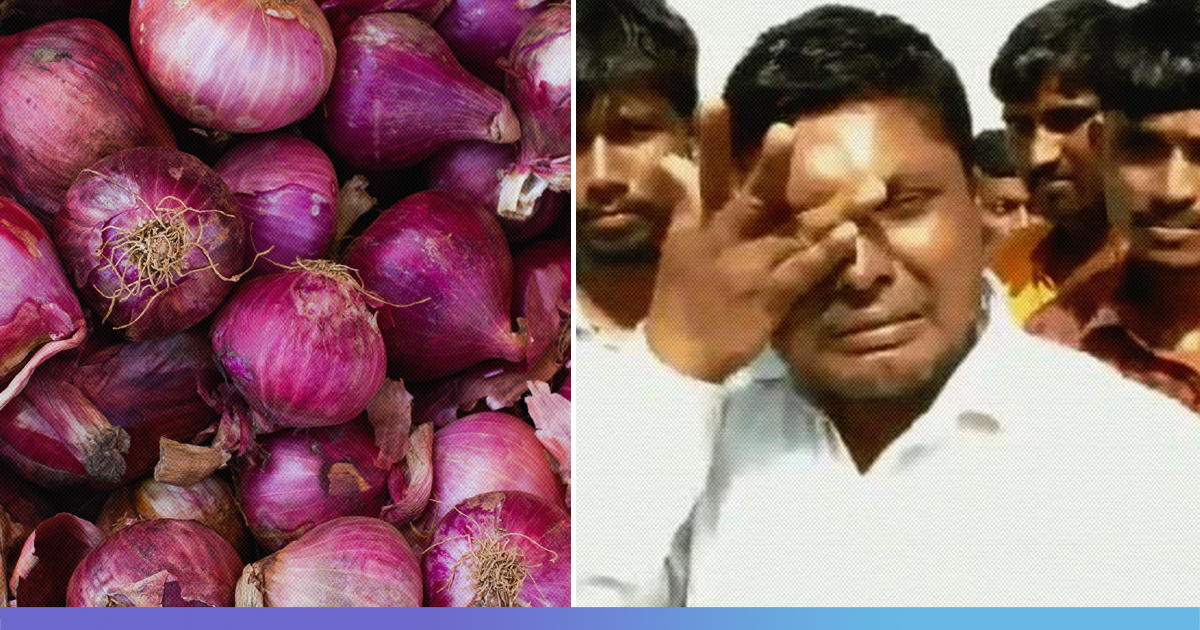On the 11th of November, the video of an farmer breaking down over the abysmally low prices at which he was forced to sell onions, went viral.
Hailing from Ahmednagar in Maharashtra, the farmer’s voice quavers as he counts his woes in the video. The video was shot just as he came out of the market finishing the humiliating sale. He says that he had paid for extra labour to harvest the crop during the rains that had caused heavy flooding in the state, but despite the effort, his onions were bought by traders at Rs 8 per kilogram.
The farmer was outraged by the system’s failure to solve their crisis. The state of Maharashtra, which just underwent elections, is still without a government. “They come to us during election time for our votes but in spite of being aware of our condition they have done nothing to help us,” he said in the video.
Onion prices in almost all cities are touching nearly Rs 100 per kg. The cost is almost 1000% more than the price at which onions are bought from farmers.
The reason for this unbelievable hike is understood to be the nexus of middlemen and hoarders, who store onions in godowns and create an artificial scarcity in order to increase demand and sell items at higher prices.
During the Maharashtra assembly polls, the abrogation of Article 370 was vehemently propagated as the government’s achievement, while Bharat Ratna to Savarkar was another subject of discussion. Farmer distress took a backfoot during the politician’s campaigns.
It was only after the BJP-Sena ‘Mahayuti’ won majority of seats, the NCRB released data on farmer suicides and the issue once again came to light.
There were over 11,000 farmer suicides in 2016 alone, averaging to 31 suicides per day and despite this knowledge being available to the present dispensation, Indian farmers continue to be forced to sell their produce at appallingly low prices.
In 2018, farmers across the nation under the banner of Bhartiya Kisan Union staged a protest in New Delhi for an economically justifiable Minimum Support Price. Their rally was stopped and the protestors were brutally water cannoned and shot at with tear gas.
The Logical Indian Take
Delay in producing the farmer suicide data and not paying much attention to the farmers’ crisis during the election campaigning certainly raises a question about the government’s attitude to address agrarian distress. Farmers have been demanding MSP as per inflation and economic growth for the past five years. The government did increase the MSP in December last year and the central government just before the 2019 Lok Sabha polls came up with the PM Kisan Support Scheme. But experts say that mere increase in MSP is just a partial solution and market reforms can only solve the agrarian crisis.
Also Read: Farm Labourer Commits Suicide Wearing BJP T-Shirt In Maharashtra, Contradictory Reasons Emerge












